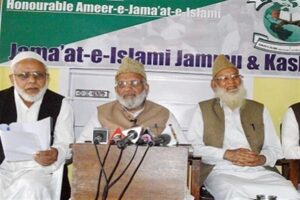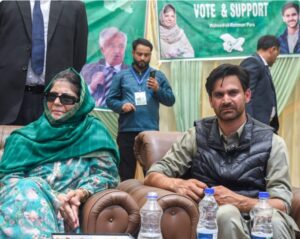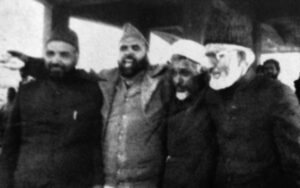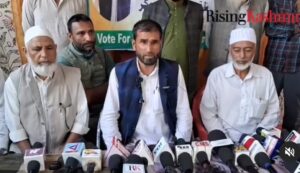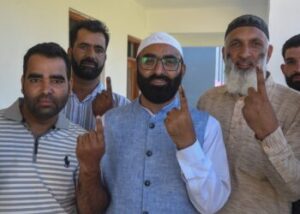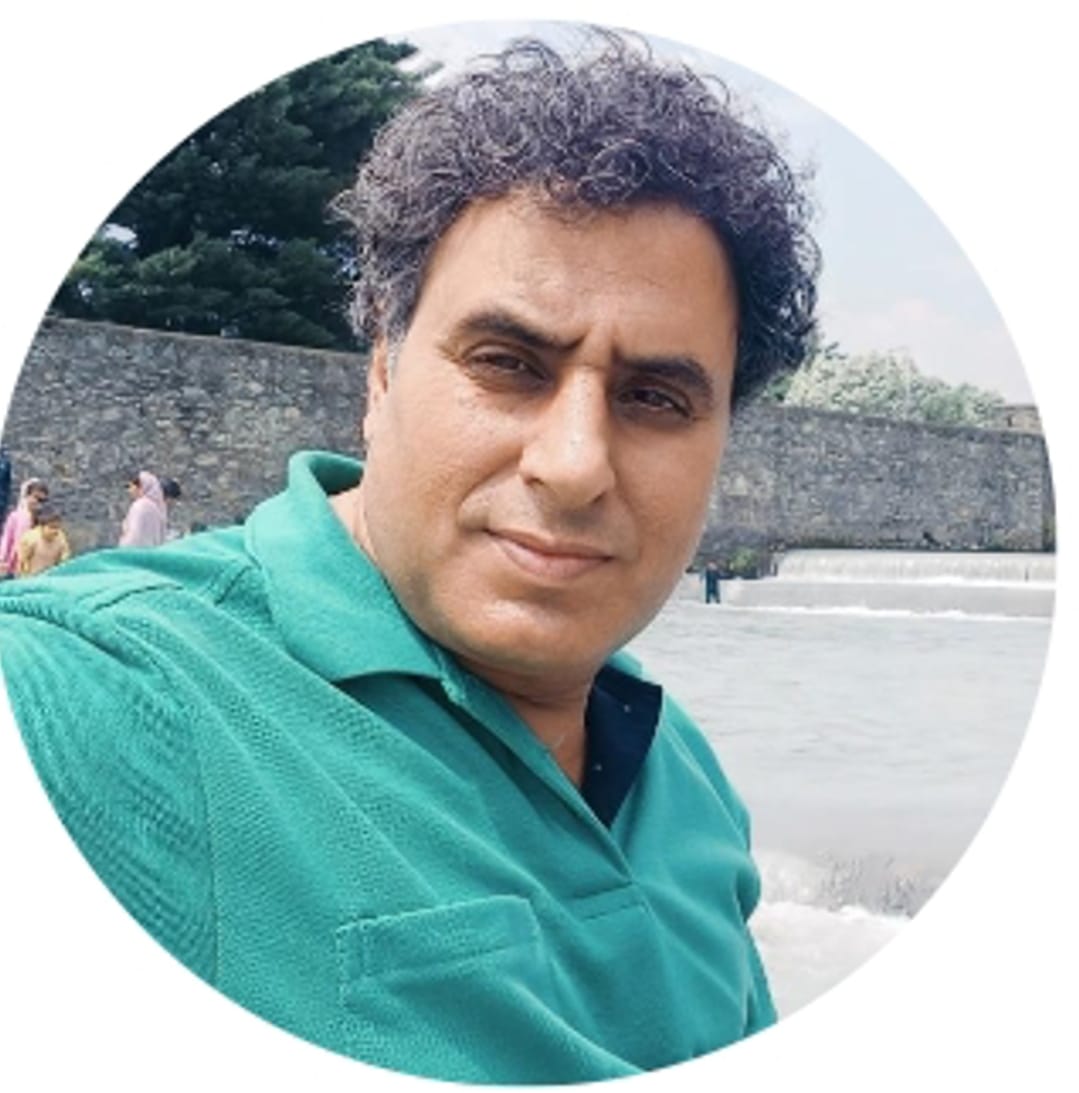From Faith to Politics: The Double Game of Jamaat-e-Islami in Kashmir
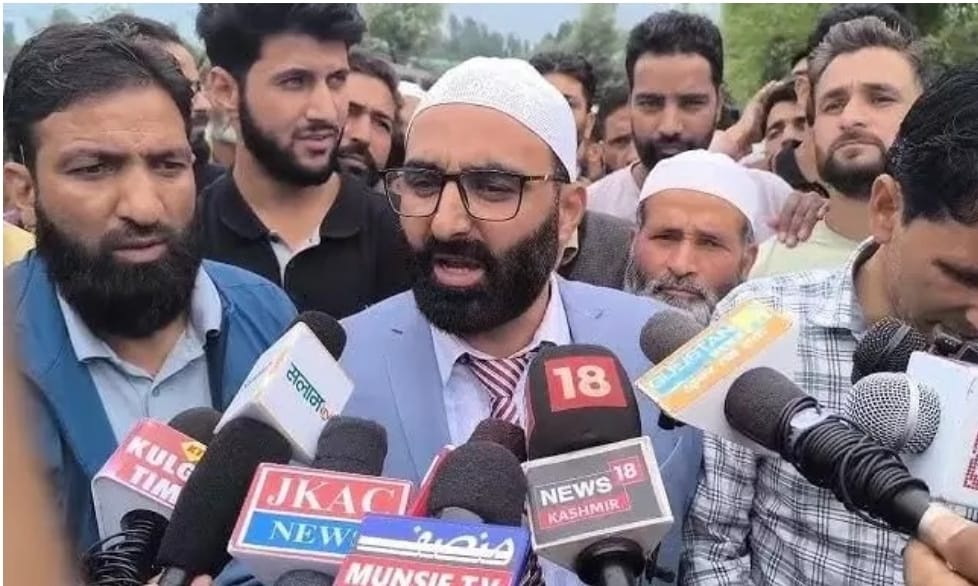
I still vividly remember my childhood, when we used to listen to the fiery speeches of Jamaat-e-Islami (JEI) leaders and preachers. The emphasis was always on Jihad. They claimed that life was incomplete without establishing the Islamic system of governance in Kashmir.
The JEI leaders always held the position that any association with non-Islamic states or “kafirs” (disbelievers) was a sign of weak faith. According to them, there could be no compromise between a Muslim and a system based on rules which do not align with Islam.
Throughout our childhood, teenage and youth years, we were constantly taught stories of heroes of faith, filled with examples of their endurance and steadfastness against any non-Islamic rule. Palestinians and Afghan Mujahideen were depicted to us as heroes of resistance.
I remember that under the umbrella of Jamaat-e-Islami, organizations like the Islamic Study Circle and others would distribute free literature from the Ikhwan al-Muslimoon (Muslim Brotherhood). They would teach us about the works of personalities like Sayyid Qutb and Zainab al-Ghazali, who represented resilience in the face of oppression.
During our school, college and university years, naive and innocent youths would hear stories about the betrayal by Sheikh Abdullah and the National Conference, ending each day with cursing those as “traitors.”
This was the era when Jamaat-e-Islami preached the idea of a “true Muslim” – one who leaves behind hypocrisy and embraces the singular Islamic faith, rejecting any alliances with those who are not Muslims. The idealized figure of Caliph Umar (RA) was promoted as the model ruler, and Jamaat-e-Islami presented itself as the movement to establish a similar Khilafat (Islamic state) in Kashmir.
Back then, popular slogans in Kashmir used to be “Yahan kya chale ga Nizam-e-Mustafa” (What will prevail here? The System of Mustafa), that is Sharia Law, and “The three signs of life: Allah, Muhammad, and the Quran!”
Real Agenda Behind Jamaat-e-Islami’s Religious Card
But as time passed, the harsh realities of life revealed the bitter truth. Their preachings about Islam were a facade for their real intentions. The religious message that seemed so pure to us turned out to be nothing more than Jamaat-e-Islami’s strategy for power and self-interest.
The religious card played by Jamaat-e-Islami was disguised under the slogan of the “Nizam-e-Mustafa.” But we Kashmiris discovered that it was only their calculated and pre-meditated scheme to bring certain influential religious families and half-educated clergy into power.
The ideology of Maulana Maududi was used as a cover. Fabricated interpretations of the faith were employed to justify this agenda. All this was presented to the common people as “real Islam.” Behind the scenes, it was a strategic move orchestrated politically to fragment Kashmir politics.
Their strategic plan was unleashed in the streets of Kashmir to bite the very people it claimed to protect. When the Centre faced difficulties with Sheikh Abdullah’s leadership, especially after his demand for a plebiscite and greater autonomy, they needed an alternative. This led to efforts to weaken Sheikh Abdullah by aligning with other political figures like Bakshi Ghulam Mohammad, G.M. Sadiq, Mir Qasim, and Mufti Mohammad Sayeed. Mufti Sayeed played a crucial role in linking Delhi with Jamaat-e-Islami during this period.
Jamaat’s Religious Narrative Became One With PDP’s Political Ambition
I was studying in the Degree College in Anantnag when Jami’at-i-Tulaba (Jamaat’s student wing) began campaigning for the PDP. They declared that PDP’s symbol and green colour aligned with Islamic principles and hence, they had achieved the first milestone towards the establishment of an Islamic system. They convinced many students that this alignment symbolized a step forward for Islamic governance in Kashmir.
I still remember when Mehbooba Mufti was given a grand welcome at Kharpora by active militants, alongside Jamaat-e-Islami members. They openly supported her as the torchbearer of their agenda. This moment marked a significant shift, where Jamaat’s religious narrative began merging with PDP’s political ambitions.
Jamaat’s Clandestine Ties With Delhi Visible In 1972
The initial signs of Jamaat’s clandestine ties with Delhi became evident when the party fielded 22 candidates in the J&K Assembly elections in 1972, effectively breaking the boycott movement, which was a surprise to many. Under normal circumstances, the opposition candidates were known to be intimidated or manipulated by Congress. But this sudden success revealed Jamaat’s behind-the-scenes collaboration with the central government.
Jamaat’s secret dealings with Delhi continued to grow stronger. The same Jamaat that once condemned elections as haram now declared voting to be in line with Islamic principles
Jamaat Islami Jammu & Kashmir participated in the 1971 Parliament Elections and anticipated to win some seats. But it failed to win any, and there were charges of widespread rigging. The Central Advisory Committee of JEI then decided that Jamaat would contest the 1972 elections to the State Assembly. Through participation in the elections, the Jamaat expected to challenge the notion that politics and religion are separate.
Initially Jamaat wanted to contest all the State Assembly seats, but due to financial constraints contested only 22. Despite its expectation that it would do well, it failed to get as many seats as it had hoped due to massive rigging. It won only five seats.
Rise of Muslim United Front (MUF) and Jamaat’s Role
In 1987, the Muslim United Front (MUF) was formed, representing various Islamist and separatist factions, with Jamaat-e-Islami playing a significant role. The rigging of the 1987 Jammu and Kashmir Legislative Assembly elections, where MUF candidates were denied victory through electoral fraud, became a catalyst for the insurgency. Young leaders like Syed Salahuddin, who contested under the MUF banner, later became key figures in the militancy that followed.
When the insurgency began in 1989, Jamaat-e-Islami initially supported the armed struggle, with many of its members actively involved. This was especially evident when ISI-backed funding began pouring into Kashmir. However, as the conflict intensified and global powers became critical of political resistance backed by terror groups, Jamaat gradually distanced itself from the militancy after clear warnings from Delhi to anti-state elements that either embrace peace, shun violence and militancy or face exile/wrath of the state.
Jamaat’s Shift from Militancy to Politics
As the heat of the conflict reached the Jamaat’s doorstep, they changed their stance. They moved away from their earlier support for militancy and began aligning with the People’s Democratic Party (PDP) led by Mufti Mohammad Sayeed.
This did not mean that Jamaat changed its ideology in any way. This was only a temporary tactical retreat for them, in order to gain strength and political clout.
In the early 2000s, Mufti and Jamaat formed a close partnership, with Jamaat silently backing PDP’s policies. This was a significant shift from their previous stance where they had condemned electoral politics as un-Islamic. Now, they not only participated but actively campaigned during elections.
Jamaat’s secret dealings with Delhi continued to grow stronger. The same Jamaat that once condemned elections as haram now declared voting to be in line with Islamic principles
The bitter truth is that JEI was not driven by their love for Islam but by their personal and political interests. They have consistently used Islam to manipulate the masses for their gain
In this new phase, Jamaat leaders began publicly opposing armed resistance, declaring that they had no connection with the militants. Jamaat declared these armed units as a group of deviated and misguided youth who were citizens of the country but manipulated by the enemy.
Their secret dealings with Delhi continued to grow stronger. The same Jamaat that once condemned elections as “haram” (forbidden) now declared voting to be in line with Islamic principles, and many former militants were fielded as independent candidates in elections.
Double Standard: Yesterday’s Mujahid (Holy Fighters), Today’s Politicians
KTill 2024, Jamaat had taken the public stand that it would not contest elections, since the move would imply accepting the Indian system. Till 2024, Jamaat labelled Indian rule as the ‘dark era’ in Kashmir.
In mid-2024, Jamaat changed its stance. A senior JEI leader Ghulam Qadir Wani said that the outfit would join electoral politics if the Centre lifts the ban. JEI had last participated in elections in Kashmir before the start of militancy. It was banned after the Pulwama terror attack in 2019, with most of its leadership behind bars.
Now, Jamaat has done a complete turnaround. Jamaat members are calling their participation in elections as the beginning of a new era of change in Kashmir which they say must be celebrated like a revolution.
A video released by Jamaat-supported candidate Sayar Ahmad from Kulgam went viral on Kashmir’s social media. He grandly declared that Jamaat’s participation in elections is the beginning of a new era for Kashmir. He urged people to wear new clothes on the date of polling and requested women to cook delicious dishes like they do on Eid.
We have lived through the years when JEI declared that anyone voting in Indian elections was an enemy of Islam. Today, the same people are participating in those very elections, justifying it as part of their “Islamic duty.” These are the people who once preached that killing an Indian soldier would lead to holy martyrdom.
The common Muslim, especially in Kashmir, remains confused—were Jamaat leaders preaching the true Islam back then, or are they now?
The bitter truth is that Jamaat-e-Islami was not driven by their love for Islam, but by their personal and political interests. They have consistently used Islam to manipulate the masses for their gain. Many Kashmiris fear that Jamaat won’t change its colours, and will continue with its old patterns in the future.
Jamaat-e-Islami’s history in Kashmir reflects a pattern of shifting alliances, hidden agendas, and political opportunism. From opposing elections to supporting armed struggle and then returning to the political mainstream, their actions reveal a deep contradiction between their words and deeds. For the common Kashmiri, the question remains—was the Jamaat ever truly about Islam, or has it always been about power?
(The writer is the Editor of Heaven Mail, a Srinagar-based daily newspaper)
Got a fresh perspective? C-KAR invites original articles and opinion pieces that haven’t been published elsewhere. Send your submissions to deputydirector@c-kar.com

